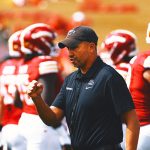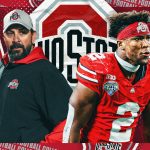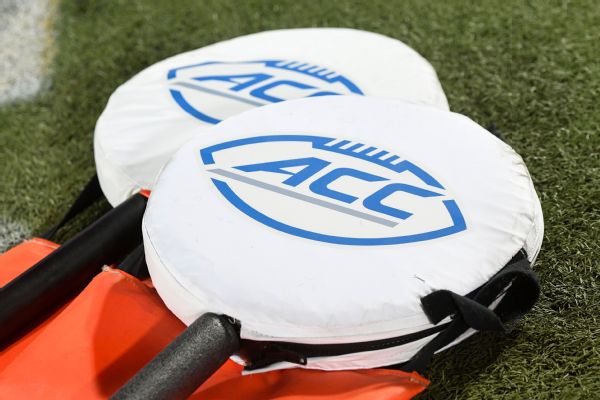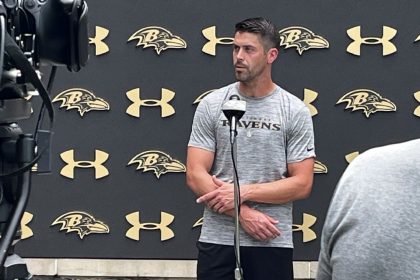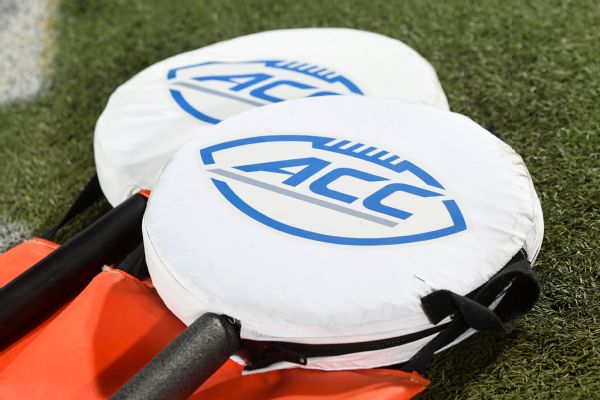
AMELIA ISLAND, Fla. — ACC commissioner Jim Phillips said Wednesday the pending litigation with Florida State and Clemson is “disruptive” and “harmful” but it has not changed the dynamic between them as the league wrapped up three days of meetings.
Phillips and league representatives, including athletic directors, football coaches and men’s and women’s basketball coaches met to discuss a big list of topics — including a possible settlement in the House vs. NCAA case, CFP expansion, revenue distribution and changing the perception around the league.
But with Florida State, Clemson and the ACC engaged in lawsuits against each other over the league’s withdrawal penalty and grant of rights, uncertainty continues to hang around the league as it charts a new course with three new members joining in the fall. Cal, Stanford and SMU also participated in the league meetings.
Phillips acknowledged what remains ongoing with Clemson and Florida State, saying, “It’s difficult, it’s disruptive, it’s harmful but that’s the world we live in. It hasn’t changed one iota about how we’ve interacted with them and it shouldn’t.”
It should be noted Clemson and Florida State were full participants in the meetings over the past three days. Florida State athletic director Michael Alford said Tuesday the meetings were “cordial.” When asked if their future in the league could be salvaged, Alford said, “We’ll just wait for that to play out.”
Asked the same question Wednesday about salvaging a future with Florida State and Clemson in the league, Phillips said, “You have to stay optimistic, and you work through these things. I don’t know where it’s going to go. But I will continue to remain optimistic about our league … and I won’t ever change until somebody else tells me differently. Am I going to fight and protect the ACC? Absolutely. I have to do that. That’s my responsibility. So we’ll see where it goes.”
Clemson and Florida State have specifically pointed to a mounting revenue gap with the Big Ten and SEC as reasons their future in the league is untenable. But Phillips said the ACC has worked to address those issues, including full distribution of the ACC Network and success initiatives that reward on-field success.
“If we’re chasing money, then we’re chasing money,” Phillips said. “But I believe we’re also trying to chase success. And so if it’s just a money issue, which no one can show me that money equates success, you can maybe show me some examples, but I can show you some examples also, where schools have done really well on the national scene with some less revenue.”
That revenue gap will grow further in the expanded 12-team CFP, with the SEC and Big Ten set to earn a larger share of that revenue pie. North Carolina coach Mack Brown said Tuesday he was “disappointed” that money will not be equally distributed.
Phillips said Wednesday when the final breakdown was made over CFP appearances, the ACC was slotted in 17 to 18%.
“I felt like I negotiated hard, just like every conference did and we got to a place that at the end of the day, ‘Do you love it?’ You don’t love it, but it certainly was better than where we started, and it’s more than we’ve ever had relative to CFP dollars. But I again understand it causes even a greater gap.”
Phillips said it was imperative to get more than one team into the CFP, and addressed trying to change the perception surrounding the way the league has performed in football.
“We have to try to change that, and we’re determined to do that,” he said.
As for the settlement talks in House vs. NCAA, Phillips said he could not get into specifics because too many unknowns remain about what the final dollars will look like. But the ACC presidents and chancellors will meet next week in Charlotte, North Carolina, for their spring meetings to discuss the issue further.
He also noted that the league has been able to find success across the board, with five national titles so far in this athletics season, and does not want that to get overshadowed with what is playing out in courtrooms across three states.
“These cases are going to take a little while,” Phillips said. “We’ll have to work through them. We have 10,000 student athletes that are really doing well that are performing at the highest level. I hope that we don’t lose sight of while all this is going on, the conference continues to do really well. We’ll manage what we have to manage.”

